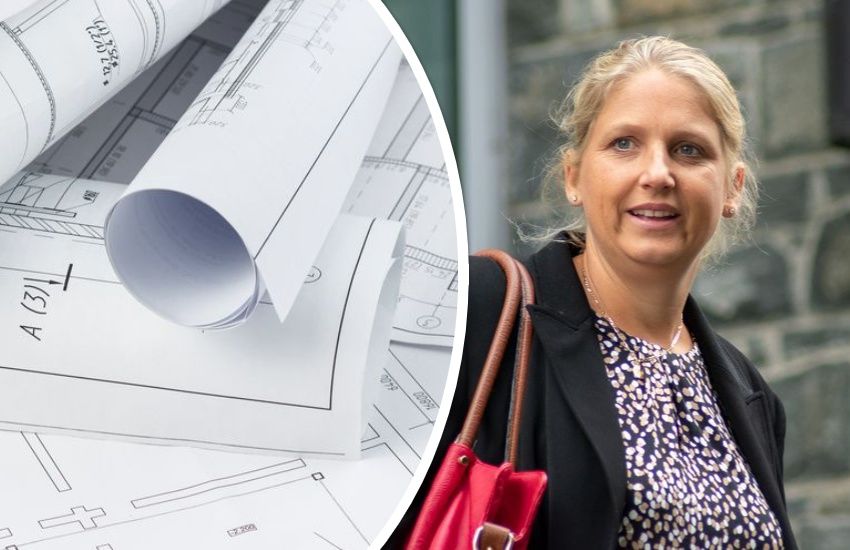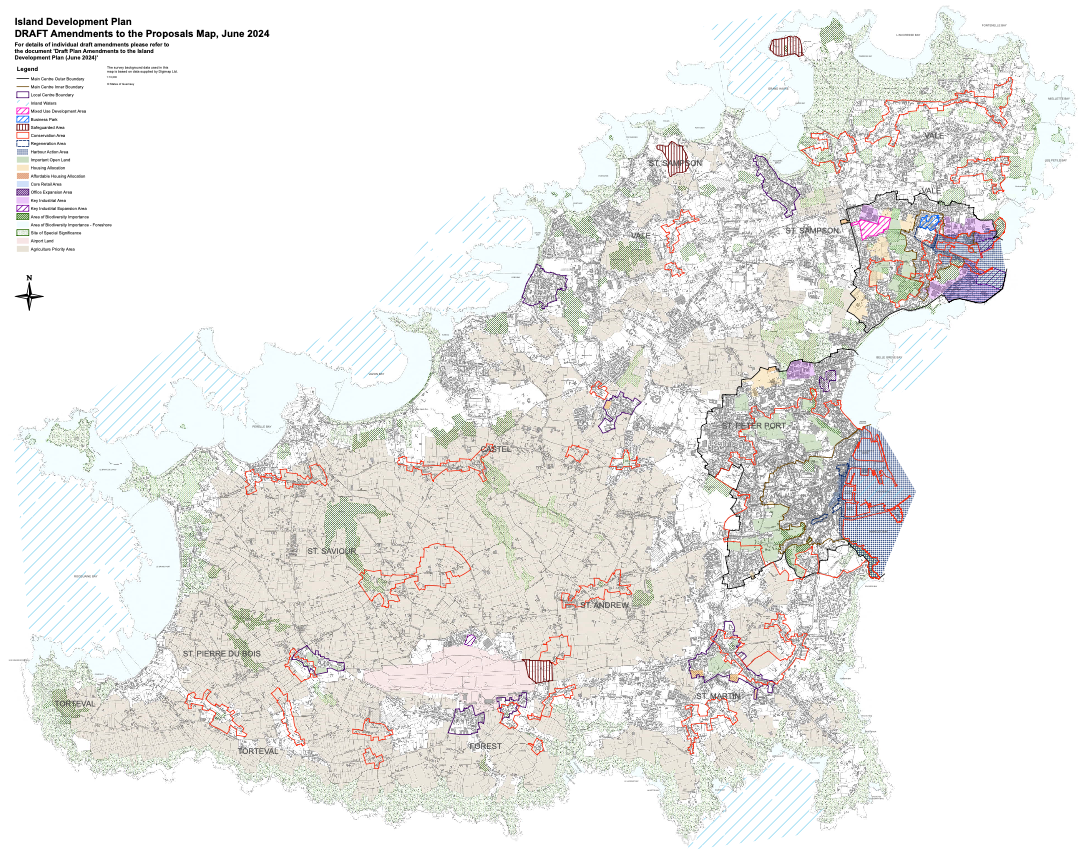


The Development & Planning Authority has concluded there is already sufficient land zoned for housing to meet private market needs for the next five years – with around 2,000 units possible across these sites.
It comes as the Authority today publishes recommendations to change the central planning document – the Island Development Plan – after scaled back review into planning policies.
It’s put forward revisions to ensure there’s enough land available to build 971 private home and 901 social homes by the next decade, between 15% and 25% higher than internal States projections for housing.
The DPA says these numbers account for key worker accommodation for the first time and adds a buffer in case population growth is higher than expected in the timeframe.
It had been thought a way to deliver more housing would be the introduction of a new main centre – where most building is supposed to happen – or a new local centre, but Planning President Deputy Victoria Oliver said “we didn't need it”.
New developments are largely limited to these zones which include town, the greater Bridge area, L’Islet, Cobo, L’Aumone, St Martin, Forest and St Peters.
Instead, the DPA proposes to modestly expand three local centres to include six new sites “specifically for Affordable Housing” - but private development would be permitted on these sites under the proposed changes provided at least 80% of units aresocial housing.
If the DPA’s plans are approved the L’Aumone boundary would be extended to include Le Tassin for social housing purposes and the now partly listed Castel Hospital site which it says will “remove barriers” to its development.
But the community and deputies will have the final say on the proposals, with a major period of consultation now underway before final suggestions are submitted to States for debate next year.

Pictured: The redrawn development map of the island based on the DPA’s proposed changes.
The St Martin boundary would also be extended the most to include three additional fields for social housing - Ville Amphrey, Longue Rue and School Lane Vinery.
Meanwhile the northern main centre would be expanded to include Collingwood off Route Militaire, while the town main centre would be expanded to include Selbourne Vinery on Route des Coutanchez.
Other social homes would be delivered on sites already owned by the States or the Guernsey Housing Association, with the DPA also planning to rezone the data park site – now owned by the GHA – to a mixed-use site with at least 60% of the land for homes.
There would also be an expansion of existing housing sites at Cleveleys Vinery and La Vrangue.
The DPA also propose removing all mention of GP11 – the controversial and now all but scrapped affordable housing policy compelling large sites to portion some land for social housing - from planning laws.
The policy was paused by the States just months ago.
Deputy Oliver said it had been suggested to create new main and local centres, but the evidence pointed in the other direction.
“We currently have a land supply for 2,000 private houses and we only need 970. What we really needed was more affordable housing sites. So that's why we have six affordable sites that have coming forward,” she said.
“We looked over what could happen over the next five years, and for private market housing we went up 15%. For affordable, we actually upped it by 25%. So, we had much bigger margins, and there was just no need for a new centre.”

Pictured: Deputy Andrew Taylor.
Deputy Andrew Taylor, Vice-President of the DPA, said there he personally wanted to see a new local centre out west, but there “wasn’t an appetite for it sadly".
“Ultimately the evidence suggests that we already have enough land designated for private market housing. So, to create another local centre and provide more land for housing, there wasn't a demonstrated demand for it.”
He added that private homes could be permitted on the six new Affordable Housing sites as a way to encourage their development, and was put forward following feedback from industry, States committees, and the GHA.
“If that was one of the reasons that they wanted 20% private market, to make it a viable site and actually bring it forward, then it doesn't close that door."
Deputy Oliver said it would stop the creation of single tenure communities.
“By actually allowing these affordable sites to have some element of private, it's making it a lot more pepper potted throughout Guernsey, which creates a much better environment for everybody.
“I know the percentage was talked about a little bit, whether it should be 10% or 20%. In the end, we went with 20% because we felt that that gave a better chance of private joint ventures and joint partnerships that will hopefully come forward, which the GHA know we're particularly keen on.”
The inclusion of the Castel Hospital in a developable zone should make its conversion easier, with Deputy Oliver saying no matter what it’s listing must be complied with. Deputy Taylor said “there’s still potential” but compared to non-listed buildings “it's just it is a higher bar to reach”.
A public inquiry has now launched with comments and suggestions invited from the community in writing or through an online portal before the plan is scrutinised by an independent planning inspector. There will be an opportunity for further comments later, but not to suggest changes.
The DPA is also holding an in-person drop-in session on 29 June until 15:00 in the foyer of Beau Sejour, and further engagement events are planned.
Comments
Comments on this story express the views of the commentator only, not Bailiwick Publishing. We are unable to guarantee the accuracy of any of those comments.